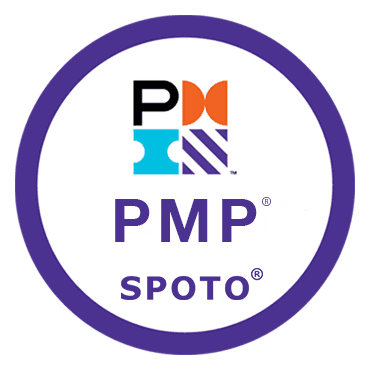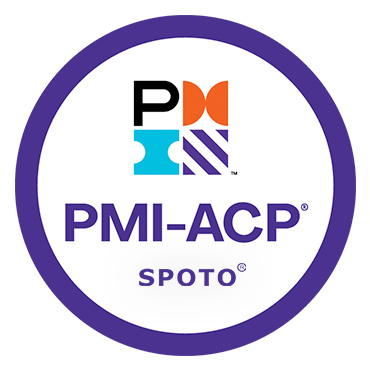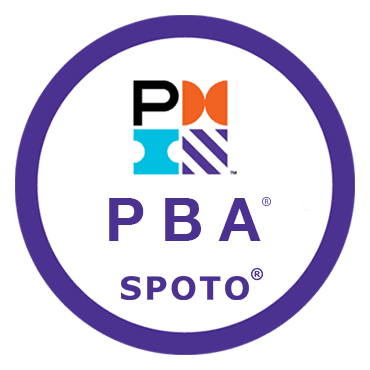Even the most seasoned project managers may require training and preparation for the PMP certification exam. PMP certification is a well-recognized certificate that many project managers add to their resumes.
If you’re a project manager seeking to advance your career, you’ve undoubtedly heard these three letters mentioned in every certification discussion you’ve had. However, you may not be aware of what PMP stands for or whether the certification is worthwhile.
Let’s delve into the specifics to understand what PMP certification is, who should apply, and how to obtain it.
| Categories | Exam Code | Pass Exam Dumps |
|---|---|---|
| PMI | PMP | |
| RMP | ||
| CAPM | ||
| PgMP | ||
| ACP |
Table of Contents
What is the meaning of PMP?
Project Management Professional (PMP) is an acronym for Project Management Professional. The Project Management Institute (PMI) offers this certificate, which is acknowledged as a professional standard in the project management business worldwide.
PMI, the industry’s largest project management association, serves over 500,000 members worldwide with project management training, tools, and networking opportunities.
Why should you get PMP certification?
A key question on many project managers’ thoughts is whether or not PMP certification is worthwhile. Let’s start with a breakdown of the advantages of PMP certification.
The advantages of PMP certification
- Enhances project management fundamentals
- Provides a well-structured framework for project management.
- Assists you in gaining professional clout in the project management field
- Provides access to a variety of job options
- Increases your chances of getting a raise and promotion.
Statistics show that obtaining a PMP certification can help you earn more money. According to the eleventh edition of PMI’s Earning Power: Project Management Salary Survey (2020),
- The PMP certification is held by 82 percent of project managers polled.
- On average, PMP-certified survey respondents earn a 22 percent higher median salary than those who do not have the certification.
- The longer you have a PMP certification, the higher your median income will be.
Considerations for PMP certification
There’s no denying that PMP certification comes with a slew of professional benefits. However, before considering whether or not PMP certification is good for you, you should analyze the big picture.
Here are some things to remember:
- Obtaining PMP certification is a significant financial investment. Prepare to devote a significant amount of time and money to PMP preparation, studying, and the exam itself. For example, to apply for PMP certification, you must have 35 hours of formal project management instruction. You may choose to pay for a PMP training course or other study materials to prepare for the PMP exam.
- The PMP certification focuses on theory and process rather than strategic thinking and problem-solving creativity. You can spend all day laying out risk management and dispute resolution stages, but people and projects don’t always fit neatly into a process box. You’ll still need to find ways to interact with people and devise solutions that consider your project’s specific aims and personalities. And nothing beats hands-on experience when it comes to learning how to think on your feet when a project throws you a curveball.
- Having a PMP certification can help you in any field, but it’s beneficial if your company has a rigid process. A project manager in the construction or manufacturing industries, for example, would benefit from PMP certification. On the other hand, a digital project manager who manages projects that move quickly and change frequently could do without it.
In the end, is PMP certification worthwhile?
You are the only one who can decide if PMP certification is good for you. It all depends on the organization you work for and how important project management is to them.
Here’s how we see it: If you have the financial resources to achieve PMP certification, go for it! Learning is learning, and it will only help you advance in your work. Keep an open mind and be flexible enough to adapt to the project’s current situation.
How to Become a PMP (Project Management Professional)
Obtaining a PMP certification is a relatively simple process. To get your PMP certification, complete these seven steps.
- Become a member of the PMI. To apply for the PMP certification, you must be a PMI member. PMI membership is $129 per year, plus a $10 application fee.
- Enroll in a PMP course. To be qualified for the PMP certification, you must complete 35 hours of project management instruction. Choose from a variety of PMP course alternatives to get the needed PDUs.
- Submit an online application for the PMP certification. Prepare to demonstrate that you’re a real-life project manager with hands-on experience leading and directing a cross-functional team. You’ll also need to show that you’ve completed formal project management education.
- Make an appointment to take the PMP exam. PMI will email you directions for arranging your test after your application has been approved. Before your eligibility expires, you’ll have one year to take the exam.
- Prepare for the PMP examination. Examine A Guide to the Project Management Body of Knowledge at the library (PMBOK). PMI also provides other materials, like a PMP exam content outline, sample questions, and study courses to help you prepare for the exam.
- Take the PMP test (and pass it). It’s now time to put all of your hard work to the test! Don’t worry if you don’t give the first time. You can take the PMP test up to three times in a single year to get your certification.
- Maintain your PMP certification by continuing to learn. Obtaining your PMP certification is not a one-and-done procedure. To keep your PMP certification current, you’ll need to acquire 60 PDUs every three years.
You may also like: A Step-by-Step Guide on How to become a PMP (Project Management Professional)
PMP Qualification
You’re not nearly ready to get PMP-certified if you’re starting as a project manager. To meet the PMP certification eligibility requirements, you’ll need project management expertise.
So, who is eligible to take the PMP exam? Anyone with project management expertise who passes these three requirements is qualified to take the PMP exam:
- Manages the entire project from start to finish.
- Directs and leads a multi-functional team to complete projects on time and within budget.
- Is aware of how to apply the appropriate technique to a project.
SPOTO will help you pass the PMP exam.
Do you want to pass the PMP test on your first attempt? Take SPOTO PMP practice exams, which include actual PMP exam questions and answers. Alternatively, you can enroll in a SPOTO online PMP training course to acquire the most up-to-date PMBOK theory as well as real-world PMP experience.










Comments